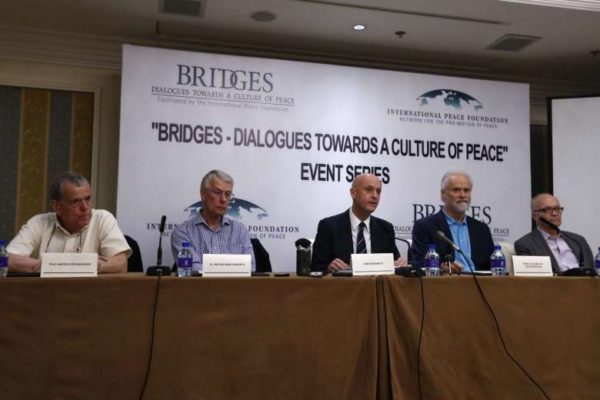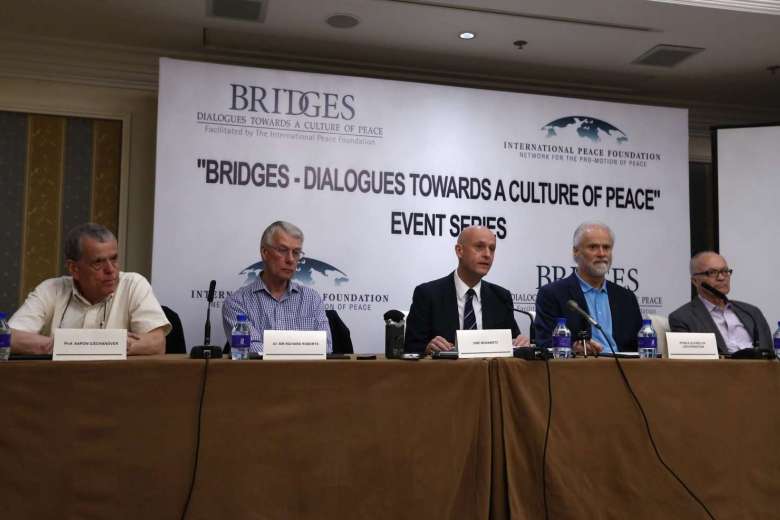A group of three Nobel laureates have said that sanctions imposed on North Korea are hampering health and science and should be eased.
They were speaking in Beijing after visiting Pyongyang in what was billed as an attempt to promote dialogue.
International sanctions on North Korea were further tightened in 2016 after the secretive country claimed to have tested a hydrogen bomb and launched a missile into space.
The laureates’ visit came as a rare Workers’ Party congress opened in North Korea, with Kim Jong-un hailing his country’s “great success” in its nuclear advancements.

The congress is widely seen as a chance for Kim Jong-un to cement his power within the ruling party.
South Korea urged the foreign delegation not to visit North Korea, fearing it would become a propaganda coup for the North.
“We didn’t come to criticize them,” said Aaron Ciechanover, who won a Nobel Prize for Chemistry in 2004.
“We really came to converse and to exchange dialogue with students.”
On sanctions, Aaron Ciechanover said “you cannot turn penicillin into a nuclear bomb… You don’t pressurize via making people sicker”.
Foreign visits to North Korea are carefully monitored and public access to information such as the internet strictly limited.
Nobel laureate for medicine Richard Roberts said he was “quite impressed” with what North Korean scientists had achieved despite sanctions.
“This embargo is really hurting the scientists and that’s a great shame,” he said.
The visit was organized by the Vienna-based International Peace Foundation (IPF) and also included Nobel laureate for economics Prof. Finn Kydland, Prince Alfred of Liechtenstein and IPF chairman Uwe Morawetz.
The latest sanctions on North Korea, approved by the UN in March, included export bans on materials used in nuclear and military production as well as restrictions on luxury goods and banking.
A UN resolution stressed the new sanctions were not intended to have “adverse humanitarian consequences” for civilians, many of whom face financial hardships and shortages of food.
